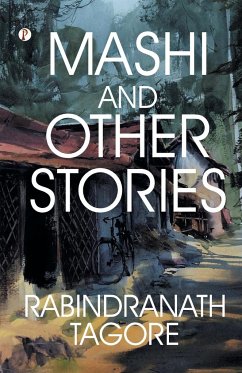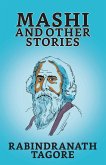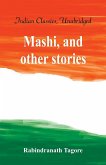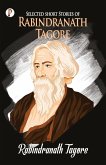Mashi and Other Stories (1918) is a collection of short stories by Rabindranath Tagore. Published after Tagore received the 1913 Nobel Prize in Literature, Mashi and Other Stories contains some of the author's most beloved works of short fiction, including "Mashi," "The Skeleton," "The Postmaster," and "The River Stairs." Rabindranath Tagore (7 May 1861 - 7 August 1941) was a Bengali short-story writer, poet, musician, composer, playwright, essayist and painter from India who was instrumental in transforming Indian art, especially Bengali literature and music, by introducing contextual modernism and new verses and prose. Both his prose and poetry were on varied topics and were considered to be magical and spiritual as visible in some of his noted works such as Gitanjali, Gora and Ghare-Baire. Referred to as the 'Bard of Bengal', his compositions were chosen as national anthems by India and Bangladesh while the Sri Lankan national anthem was inspired by his work. He became the first non-European to receive the Nobel Prize for Literature in 1913.








